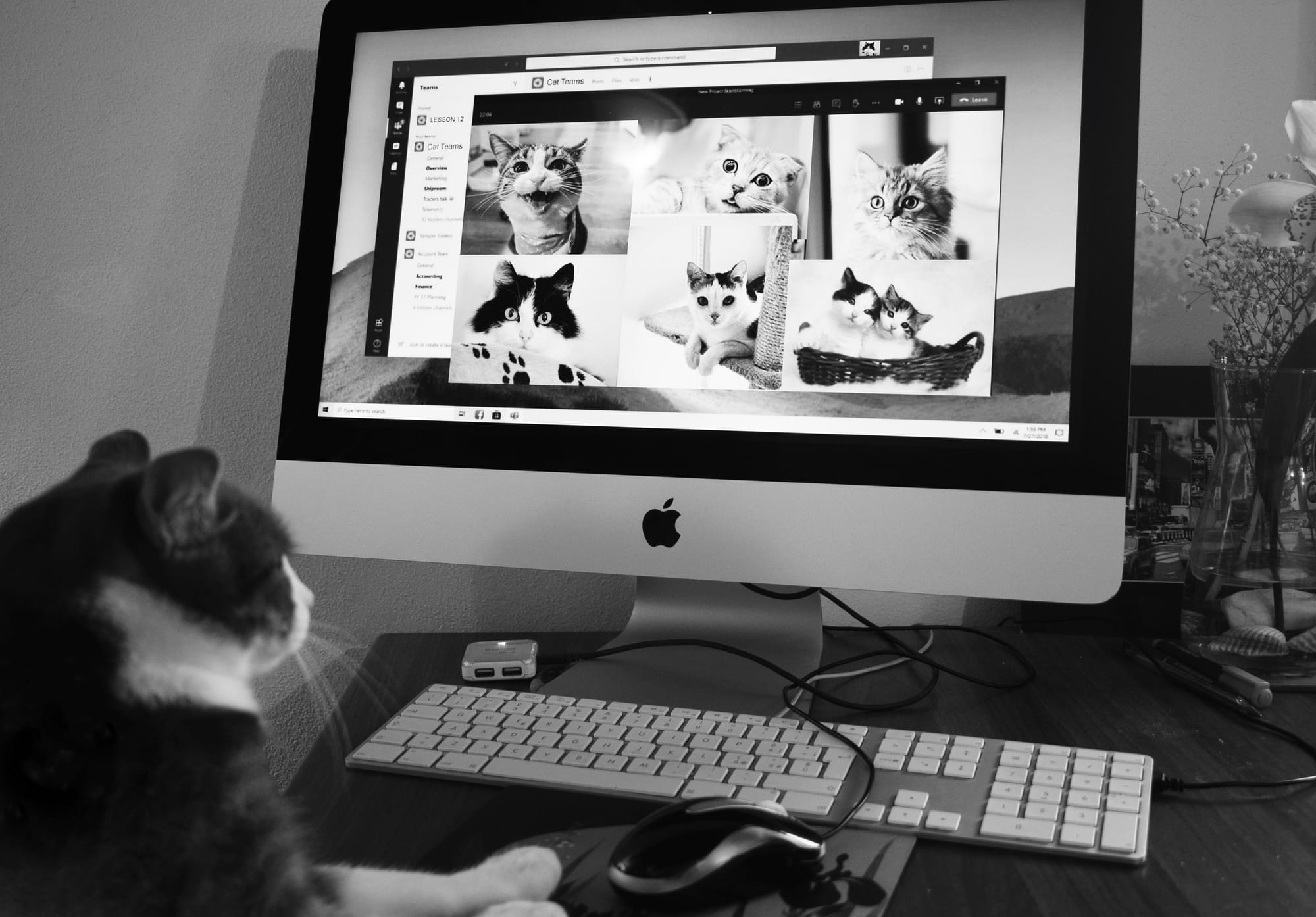7 Rules For An Effective Meeting Culture
Effective meetings are a byproduct of an effective meeting culture.

Your meeting culture is the combination of etiquette, protocol and expectations for what happens before, during and after your meetings. It’s all the things (good and bad) that make up how they are run and inform the participants' experience in the meeting.
Some questions to consider when you think about your meeting culture:
- Are people held accountable for what they said they would do?
- Do you take meeting minutes?
- Is an agenda expected to be provided?
- Are the meetings inclusive and collaborative?
- Do people read their phones and disconnect?
- Are people courteous and respectful?
I share what makes a meeting effective in my two-part guide:
- How to Have More Effective Meetings - Part 1: Purpose and People
- How to Have More Effective Meetings - Part 2: Process and Product
If you can get a group of people together who operate with the same general etiquette, protocol, and expectations, then your meetings will likely go smoothly. This means an effective meeting is a byproduct of an effective meeting culture within the organization.
Like your organization's overall culture, much of your meeting culture is determined by the people in leadership positions because they, theoretically, should set the standards for how to do things. However, there is a lot to be said about how individuals can impact the meeting culture within a team. While you can’t control how other people behave in your meetings, you have control over you.
Human interactions are like a dance; we watch how others dance and match their steps. When we change the steps, we encourage others to do the same. Regardless of your role, you can impact your meeting culture and the effectiveness of your meetings by setting an example for others.
Here are seven rules for you to follow and share with your team to set an example and encourage a more effective meeting culture in your team.
- Be on time
- Be prepared
- Be engaged
- Be a good listener
- Be inclusive
- Be accountable
- Be reasonable
1. Be on time
This seems like a gimme, but somehow it’s… not.
You all know the feeling of staring at the clock, waiting to begin because someone is late? It’s annoying.
Being late is disrespectful to everyone. Full stop. Of course, life happens, and you will be late on occasion. It happens to the best of us, but when you habitually do it, it’s a problem. Are you someone who rushes in late, flustered and apologetic? Or who hops on the Zoom call 5 minutes late because your previous meeting ran late?
Here are a few ways to help ensure you are on time for your meetings:
- Set reminders five or ten minutes before meetings so you don’t lose track of time.
- Don’t schedule or accept back-to-back meetings. Always give yourself a 15-minute buffer to stretch, take a bio break, and settle back in on time.
- Book meetings for 20-25 minutes or 45-50 minutes instead of 30 and 60 minutes.
- If you have an unavoidable back-to-back meeting, inform others at the beginning that you have to leave a few minutes early.
Beyond being on time, back-to-back meetings stress your brain and make you less productive!

And if you are chairing a meeting, while everyone contributes to keeping the meeting on time, the final responsibility to start and end on time is yours! You have to do things like:
- Interrupt over-talkers. These are the people who hijack meetings and make them go overlong. It feels rude, but what’s more rude is to let them take up everyone else’s time.
- Pull the conversation back to the original discussion if the conversation has meandered off-topic.
- Prioritize the agenda items that are most important or timely and talk about those first. If a discussion goes longer than anticipated, other items can get bumped to a later meeting.
- Aim to end the meeting 5 minutes before the scheduled end time if it is scheduled to end on the hour or half-hour.
- If it seems important that you keep the conversation going, ask the attendees if they are available to continue.
2. Be prepared
Another gimme… but not.
Almost every meeting should have an agenda. If you are chairing the meeting, create an agenda and send it out along with any supporting information as far ahead of the meeting as reasonable.
One of the benefits of preparing an agenda before a meeting is that sometimes you realize you don’t need to meet at all, and your meeting can be cancelled and replaced with an email!
If you are attending the meeting, review the agenda and attachments before the meeting so you are prepared and informed.
You don’t want to walk into a meeting and not know what it’s about, or even worse, to have called a meeting and the people attending don’t know what it’s about. If you don’t prepare before the meeting, you spend half the meeting getting everyone up to speed, or you are lost and can’t contribute.
Instead, do everyone the courtesy of preparing for your meetings.
3. Be engaged
I can’t think of anything more rude than reading your phone when there is a presentation or speaker, aside from having a side conversation or falling asleep. Having experienced all three from various audience members during my talks over the years, I can confirm that it feels pretty crappy.
While these may be indicators of the quality of my talks, I would like to think that my otherwise good reviews and invitations to return tell a different story. Regardless of your feelings on the topic or the quality of the speaker, it’s disrespectful to the work they put in for you to clearly not be engaged.
It comes down to this: Don’t do other things during a meeting. Put your phone away, close your email, mute your notifications and pay attention.
4. Be a good listener
Beyond being engaged is being a good listener.
Meetings are meant to be collaborative. Don’t talk over others. Don’t take up all the airtime speaking.
If you are there to lecture instead of getting input or having a discussion, send an email. This is especially important if you are the one who called the meeting. You asked others to join you for a reason, ostensibly because you wanted to hear from them; you will get far more from listening to what they have to say than hearing the sound of your own voice.
5. Be inclusive
All meetings will have different power dynamics, relationship dynamics and personalities; not everyone is outgoing or feels comfortable speaking in front of groups. If you are chairing a meeting, make sure everyone is given a chance to speak by setting expectations that everyone is allowed to contribute.
The people attending your meeting should know their input matters and their viewpoint is respected. If you want people to be engaged, you must engage them and make them feel valued.
As an attendee, encourage your quieter colleagues to speak by asking for their input. If you notice someone talking over others or being disrespectful, try to call it out. If you don’t feel like you can call it out in the meeting, call it out privately.

6. Be accountable
One of the worst things about meetings is having someone say they were going to do something, and then the next time you meet… they didn’t do it. Sometimes, there are good reasons for it, but often, there was no accountability set. No one wrote it down or set a deadline.
If you say you are going to do something, do it. If you can’t, tell someone so they can do it!
If you notice a lack of accountability between meetings on your team, suggest meeting minutes. Even if the only thing recorded is who said they would do what and by when. Finish each meeting with accountabilities and open each to see if they are complete.
7. Be reasonable
Getting stuck in a meeting that you shouldn’t be in or that is a lower priority than the urgent thing you are working on is frustrating and can lead to stress and even burnout. As a team, there is an opportunity to create a dialogue where people are comfortable saying no or not now to a meeting.
If you are in a leadership position, talk to your team about their priorities and if a meeting is a good use of their time. If you are reporting to someone, communicate your needs by asking if a meeting is a higher priority than the deadline you are working on. Just be reasonable! How hard could it be?😅
Help create the meeting culture you want to be a part of
A good meeting culture happens when the people attending are kind and collaborative and try to make the most of their time together. It’s one where there is interest in each other, the matter at hand, and a desire to reach a common goal. It’s one where the right people are in the room, people respect each other, and things get done.
While you might not be able to change how your team manages meetings single-handedly, you can take steps to encourage positive change.
Do you have an effective meeting culture in your team? Are you actively contributing to it by following the seven rules above?
Feeling overwhelmed? Book a chat to learn how I can help you.
Share
Ashley Janssen

Productivity consultant, writer, speaker, serial entrepreneur, chaos calmer, introvert, cat-lady. Lover of books, fitness, old fashioned’s, basketball, and video games.
Follow me on
Twitter
or
LinkedIn.
Hire me for
1 on 1 productivity consulting
or
speaking.
Related articles

How to Set Yourself Up for Big Conversations

How to Have More Effective Meetings - Part 2: Process and Product


Comments ()